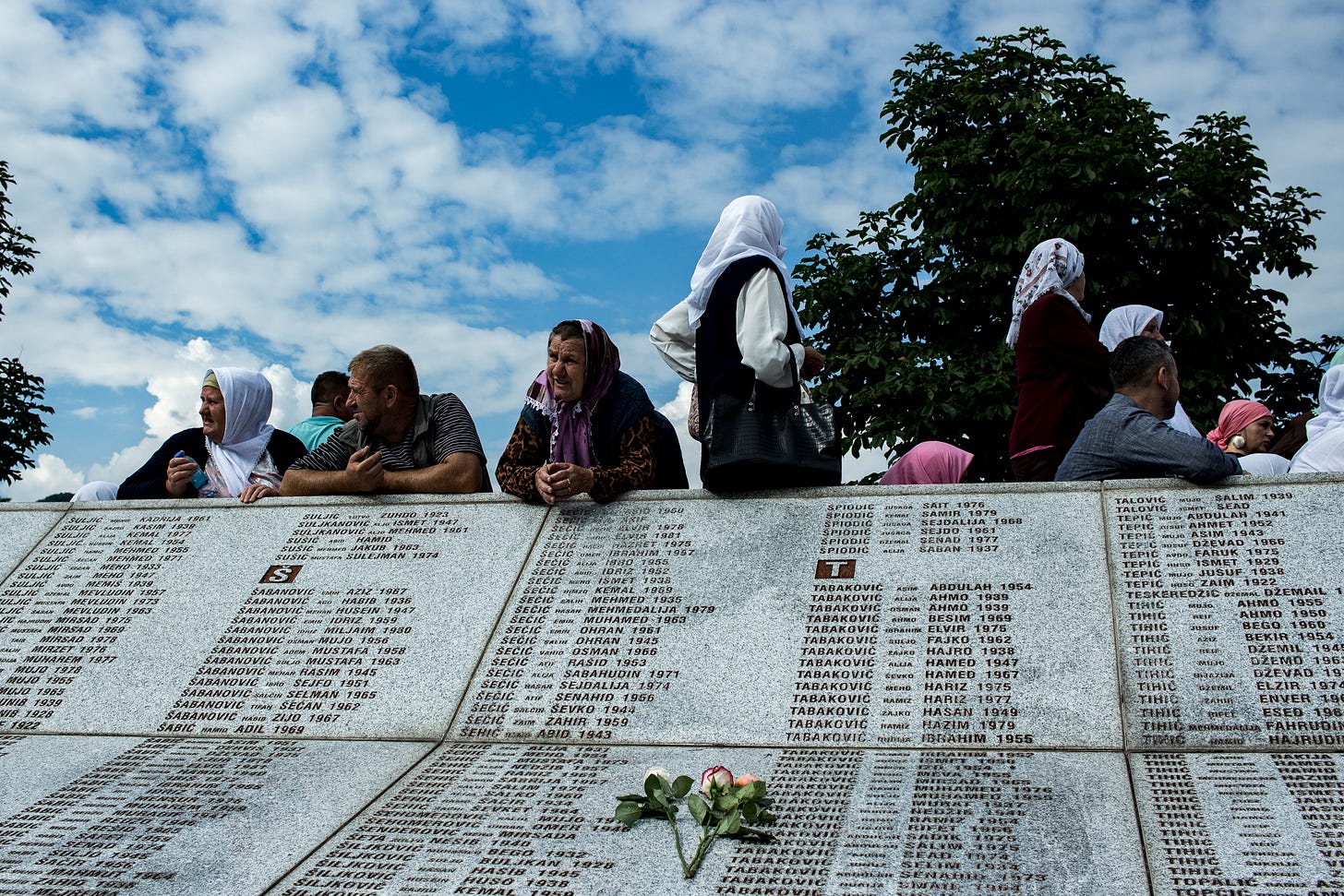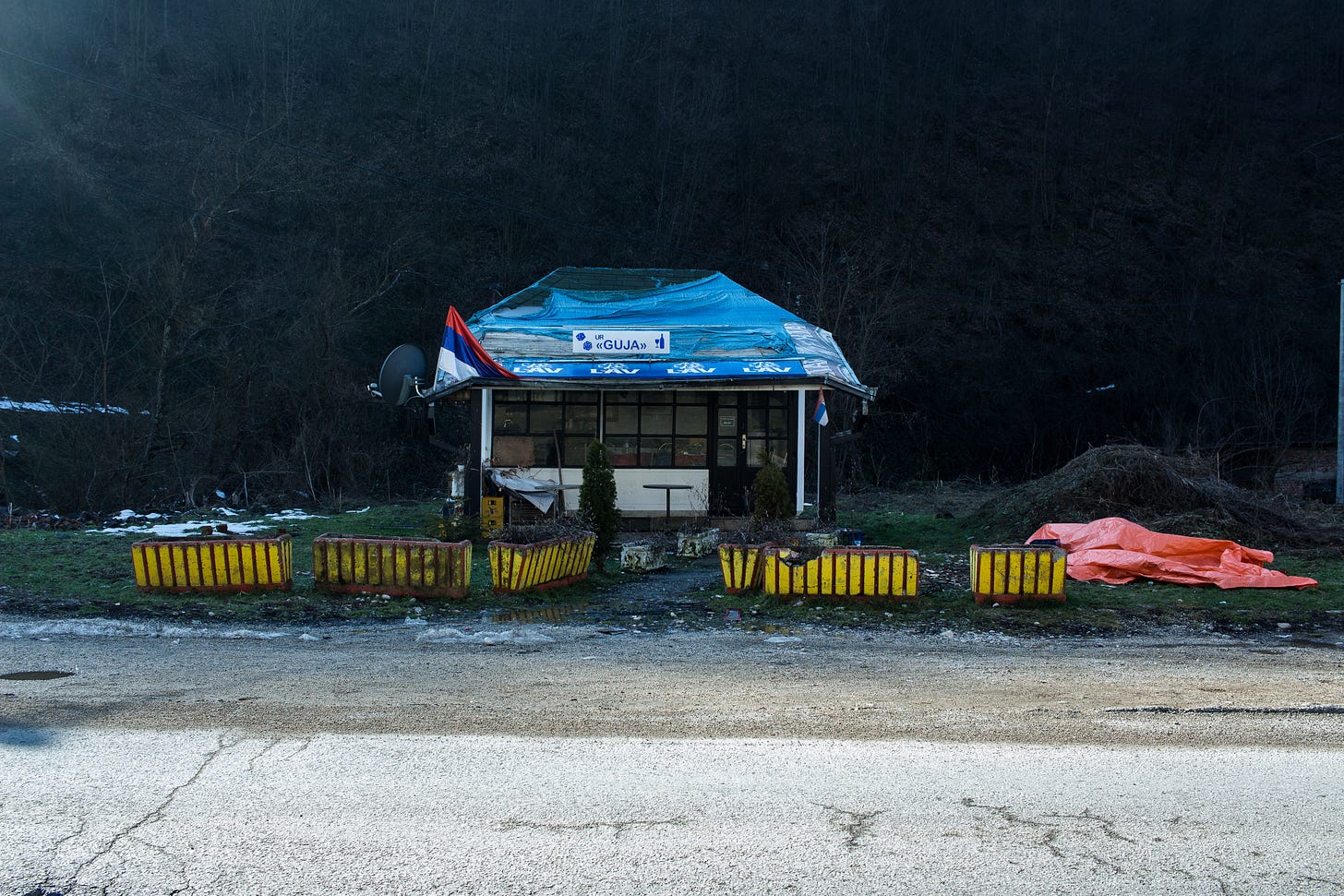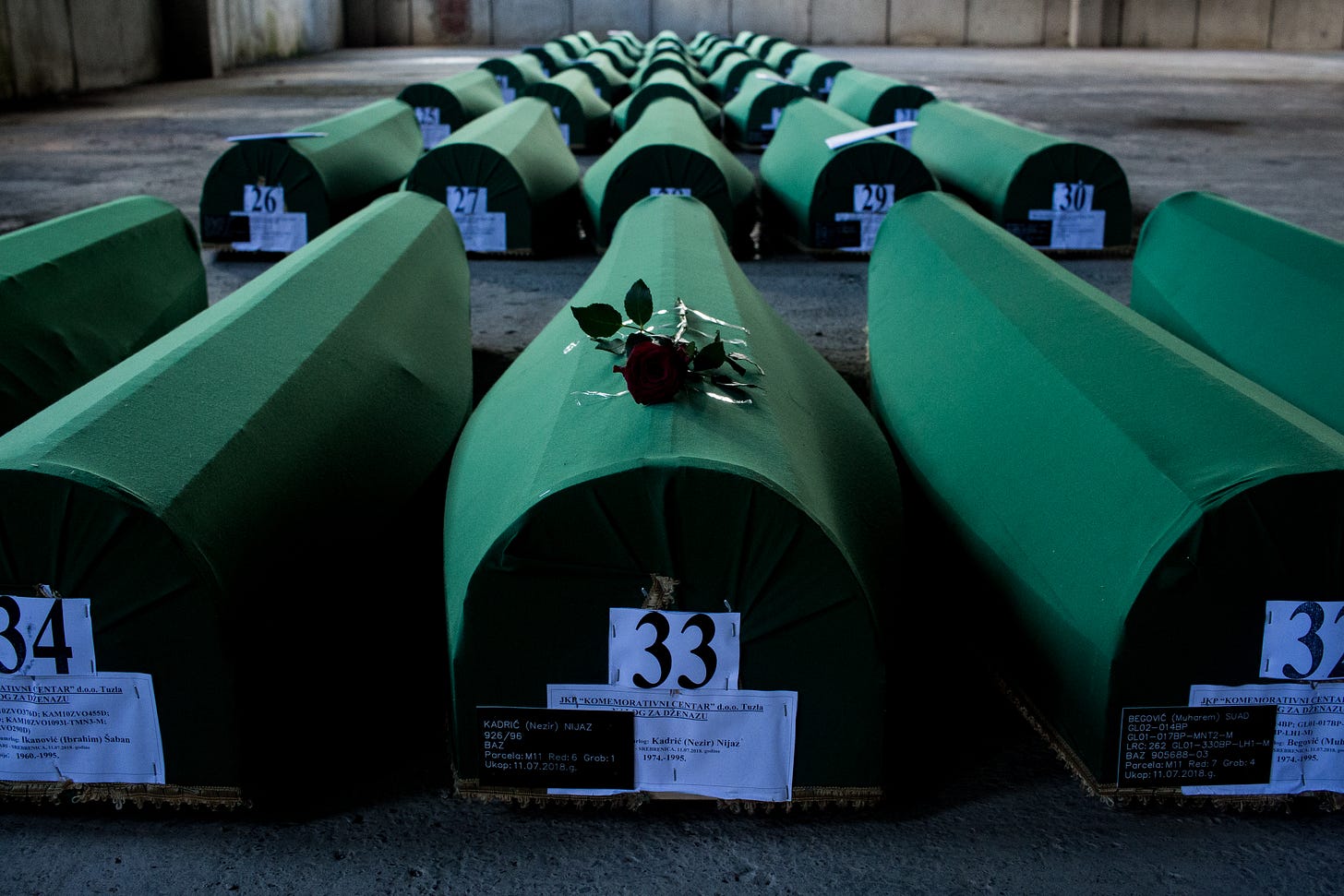How peacebuilding fails – Bosnia 30 years after Dayton
Three decades after the agreement that ended the conflict, Bosnia remains trapped in an unfinished peace and haunted by unpunished crimes.

Nearly 30 years ago the Bosnian War finally came to an end with Dayton Peace Agreement, drafted in August 1995 in Dayton, Ohio. The Dayton Agreement, or Dayton Accords, were meant to bring an end to the conflict by forming a single state of Bosnia Herzegovina divided into a Croat-Bosniak Federation and the Serb dominated Republika Srpska.
Today Bosnia Herzegovina is facing its worst crisis since that time. The government is in deadlock, the economy is stagnant and the increasingly militant Republika Srpska, led by Milorad Dodik, have made threats to destabilise the country.
In September 2020, Milorad Dodik, the current President of the Republika Srpska, requested a moment of silence in honour of a convicted war criminal who had died.
Dodik also opened a student dormitory near the capital, Sarajevo, in honour of former Bosnian-Serb leader Radovan Karadžić currently serving life imprisonment for genocide including the planning of the massacre of thousands of Bosnian Muslims in Srebrenica in July 1995.
Despite the lofty intentions of the international community the agreement only entrenched further the ethnic and religious divisions caused by the conflict. Villages and towns that once had Bosniak - Muslim or Croat majority populations became part of the Republika Srpska, and many people made homeless by the conflict were never able to return to their homes.
Despite the presence of an international peacekeeping force, threats, intimidation, and the occupation of homes by hostile residents forced many people to stay away.
While the process of prosecuting war criminals was initially swift and widely supported momentum slowed and there are hundreds who have managed to escape justice. Many of these have rebranded themselves across the region as political actors, some using wealth accrued from the conflict.
There is currently no legislation in Bosnia to prevent war criminals from taking office.
Research by Lina Strupinskie, a professor at Vilnius University, in 2023 showed that out of 92 persons convicted at the at the International Criminal Tribunal for the former Yugoslavia (ICTY), 20 are active in public life having served their sentences. The vast majority participate in public discussions about the 1990s conflicts via media platforms or publishing. Others are active in politics or with veteran organisations.
Branko Grujic, a Bosnian Serb politician, was sentenced to six years for wartime crimes in Zvornik by a court in Belgrade, ran as an election candidate for the Serb Democratic Party in 2012 after his release from prison.
Grujic told the Balkan Investigative Reporting Network that he was partly motivated by the need to pay 30,000 euros he owed the Serbian government for his court-appointed lawyer.
During the Bosnian war, Grujic headed the provisional government of the Serb controlled municipality of Zvornik during the conflict and was found guilty of the forcible relocation of over 1,600 Bosniaks from the village of Kozluk.
Those indicted for war crimes in Bosnia can also escape jail time by paying a fine equivalent to their sentence. However, a group of nine members of the Bosnian parliament is currently trying to change this.
The continued existence of war criminals in the country’s legislative bodies and public life reinforces the internal divides and continues to traumatise those who were victims of war crimes.

Another entrenched and shameful form of division in the country is the system of ‘two schools under one roof.’ Originally this was an attempt to reverse the process of forced displacement during the conflict by creating two schools within the same building catering to different ethnic groups.
However, this has gone from a temporary solution to a permanent way of segregating children along ethnic lines with teachers reinforcing the differences between them. In a 2018 report the OCSE described this as one of the “most visible examples of discrimination in the education system.”
These issues have compounded the already shaky economic situation which has led to an exodus of people from the country. Young Bosnians are particularly disenfranchised and increasingly considering immigration. A 2021 study by the United Nations Populations Fund showed that 47 percent of 18–29-year-olds surveyed say they are thinking about leaving the country temporarily or permanently.
This has not been helped by a lack of local youth organisations or third spaces where young people can engage in politics or social movements. The issue is repeated across the Balkans and is felt acutely because the younger generation who could bring a fresh voice to the problems of their respective countries but feel actively shut out.
As has been the case in many of conflicts across the globe, the political settlements that ended the conflict did much to bring together regional elites but did not effectively lay the groundwork for a stable peace, or deal with political corruption.
The machine of liberal peacebuilding, with its reliance on a ‘top down’ approach, has proved increasingly incapable of laying the groundwork for what can come after. These major flaws have become even more prevalent as the global order has become more fragmented.
Gone is the era of American hegemony, when Western liberal values were seen as aspirational. Years of inconsistent policy and hypocritical actions, such as lack of accountability for the invasion of Iraq in 2003, or the failure of the international operation in Afghanistan have undermined the ‘rules based’ order and other peacebuilding initiative across the globe.
In present-day Bosnia, Republika Srpska’s leadership is increasingly openly secessionist. Earlier this year, High Representative Christian Schmidt suspended public funding for Dodik’s SNSD party and its ally, United Srpska.
Dodik has been indicted and faces potential prison time and a ban from public office, though he has not yet been sentenced. Yet he appears increasingly emboldened, supported by allies like Vladimir Putin and Hungarian President Viktor Orbán, the latter of whom has undermined EU support for democracy in the Balkans.
The upcoming US presidential election adds further instability. In 2023, Dodik threatened to declare independence if Trump returned to office: "If Trump won again, I think I wouldn't hesitate." This is not helped by various US officials also building close ties to Serb nationalists in the region, like former Special Envoy Richard Grenell, who has cultivated ties with Serbia’s President Aleksandar Vučić, a backer of Dodik’s aims.
Other nations have also become involved in the region. Last year France signed a $3bn deal with Serbia for sale of French Rafale fighter jets. The aim of the deal is to shift Serbia away from reliance on Moscow’s arms industry, but critics say it rewards Vucic for his nationalist rhetoric.
There is ultimately no easy solution to any of this. High Representative Schmidt has the power to make sweeping moves to deal with the illegal and unconstitutional actions of individuals in Bosnia. But this is just stop-gap, and Schmidt seems reluctant to do it. EU or NATO membership might also be answer as both would give protection from a bloc of allied nations. However, both have been increasingly undermined by the ripple effects of the war in Ukraine and the actions of President Trump.
On July 11 this year Bosnia will commemorate the 30 years since the massacre of upwards of 8300 Bosnian men and boys in Srebrenica, part of a much wider campaign of genocide by Serb forces. The international community will descend on the region to make speeches, shake hands, and meet survivors. Then they will leave again.
The local people, the survivors of the genocide will remain in a state trapped in stasis until a resolution can be found.




I recently wrote about BiH via Global Bar Magazine in Swedish https://globalbar.se/2025/06/bosnien-ha-en-bra-dag-i-absurdistan/
Thanks for the text. I feel very disappointed. Many Bosnians think that one of the problems is that when we have personal interests and living in the EU or the USA, we are efficent and productive but when it comes to creating a better society in BiH we are to inactive and disengaged.